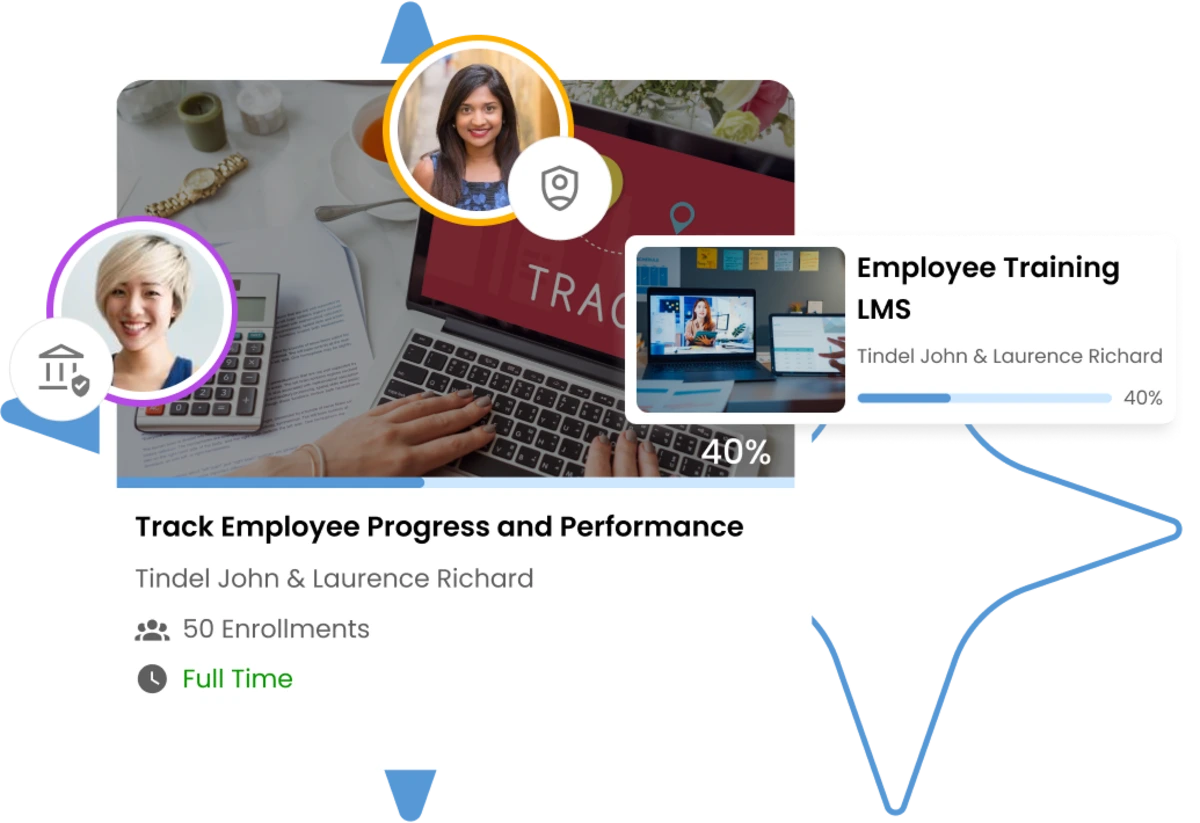How can LMS improve sales skills?
Sales LMS organizes content, monitors reps, and reinforces selling strategies, improving negotiation, product knowledge, and conversion rates for measurable business impact.
Elevate sales results with e-KHOOL LMS
e-KHOOL LMS drives revenue growth by combining gamified learning, performance analytics, and structured sales paths that reinforce real-world selling skills.
Faster Ramp-Up
New sales reps learn products, processes, and selling techniques quickly, reducing ramp-up time and hitting quotas faster.

Coaching that improves deals
Analytics pinpoint skill gaps, enabling managers to provide targeted coaching that directly enhances sales effectiveness and conversion rates.

Real-World sales simulations
Interactive quizzes, scenario-based exercises, and role-play practice prepare reps for client meetings, objections, and persuasive selling.

Continuous revenue growth
Ongoing reinforcement ensures reps retain skills and consistently improve pipeline conversion.


Sales-Focused LMS tools
e-KHOOL LMS combines gamification, role-specific paths, and CRM integration to make learning measurable, engaging, and directly tied to sales outcomes.
Competitive deal leaderboards
Track top performers, reward successful deals, and encourage reps to close more opportunities through healthy competition.
Role-Based quota training
Assign courses tailored to account executives, BDRs, and sales managers, ensuring each team member meets targets efficiently
Pipeline performance insights
Ongoing reinforcement ensures skills stick, improving deal conversion, pipeline performance, and sustained revenue growth




